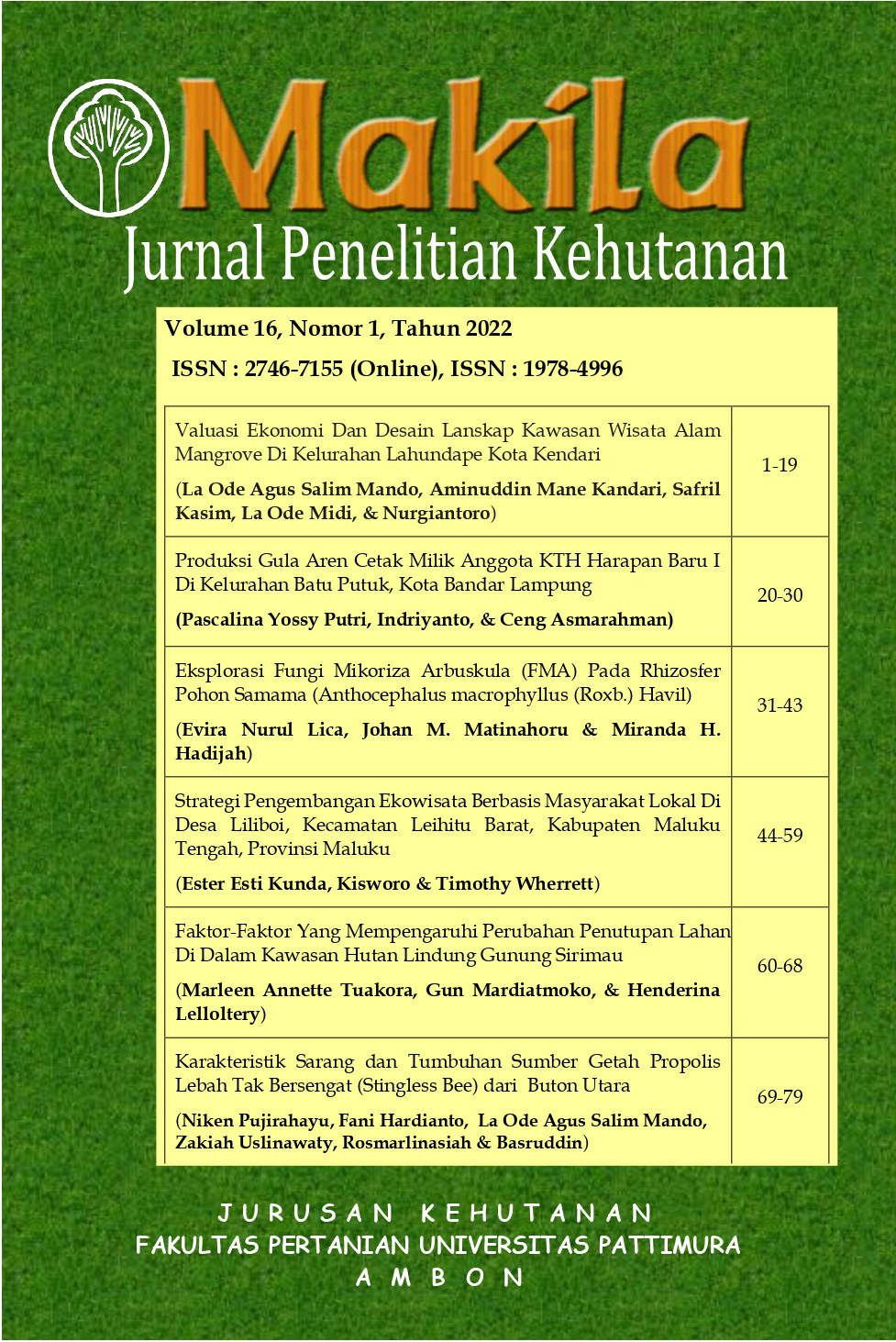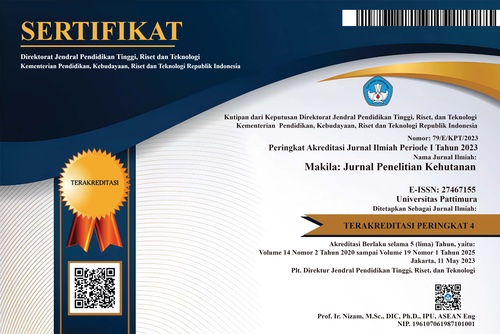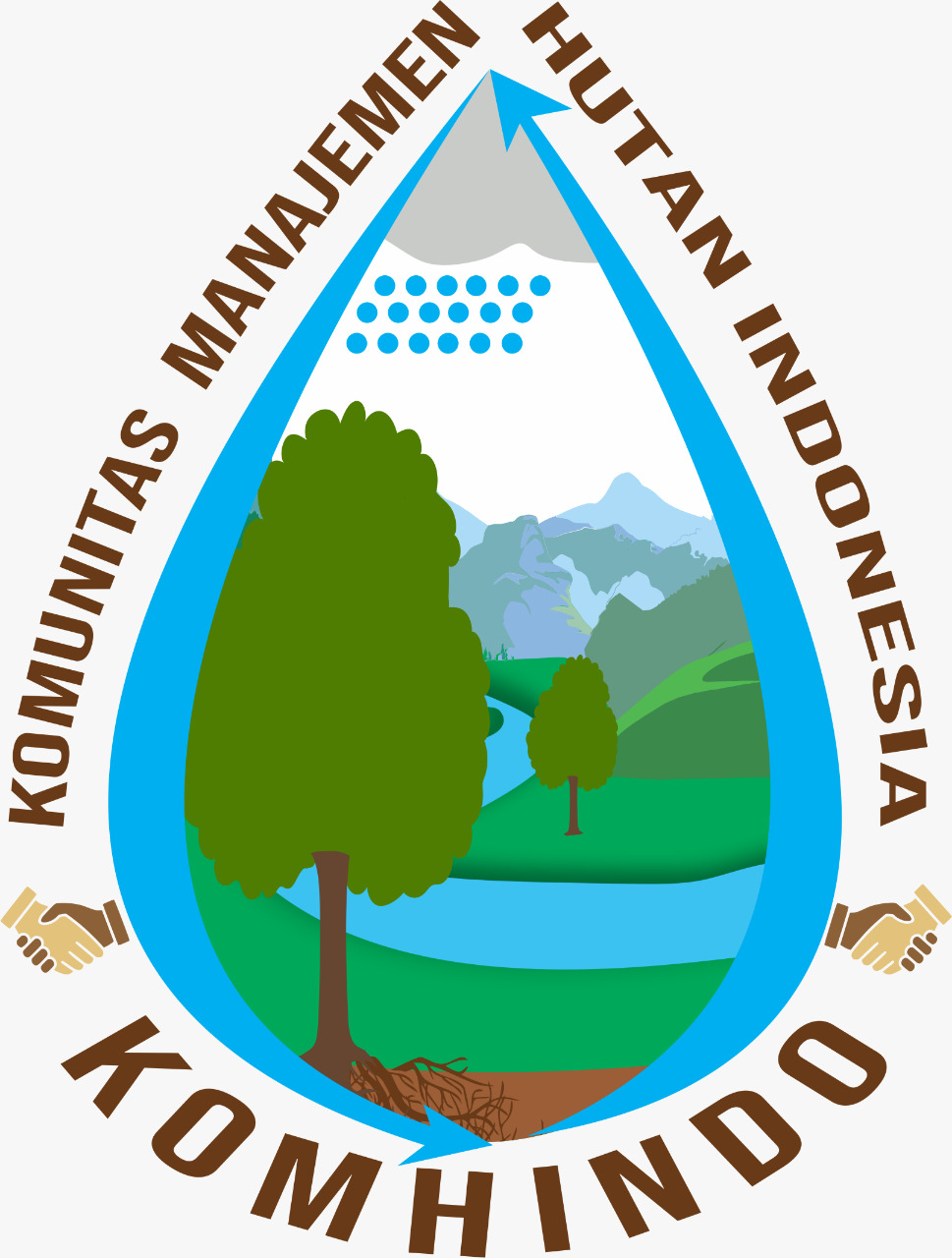STRATEGI PENGEMBANGAN EKOWISATA BERBASIS MASYARAKAT LOKAL DI DESA LILIBOI, KECAMATAN LEIHITU BARAT, KABUPATEN MALUKU TENGAH, PROVINSI MALUKU
Abstract
This study aims to explore the potential of nature, socio-cultural potential, facilities, accessibility, and characterization of society and examine the potential for tourists and analyze strengths, weaknesses, opportunities, and threats. The research method used is a survey method by making direct observations of tourist sites and the distribution of questionnaires to the public and tourists. The data in the analysis uses qualitative descriptive research and SWOT analysis. The results showed the tourism potential in Lilibooi Village is very diverse, supported by the socio-cultural Lilibooi community. This tourism potential attracts many tourists to various places in Ambon city. Community perception shows respondents agree to develop ecotourism activities. People are willing to participate in the development of tourist attractions. They argue that if Lilibooi Village becomes a tourist village, they will get job opportunities and business opportunities through various activities such as selling at tourist sites. Swot analysis results show that the strength factor exceeds weakness, and the opportunity factor is greater than the threat. Hence, the results of the quadrant analysis show the position of ecotourism development is in quadrant I. If the development position is in quadrant 1, then the aggressive strategy (SO) is used. This position describes managing to deal with various threats but still having the strength to take advantage of opportunities to overcome weaknesses.
Downloads
Copyright (c) 2022 Ester Esti Kunda, Kisworo Kisworo, Timothy Wherrett

This work is licensed under a Creative Commons Attribution 4.0 International License.











